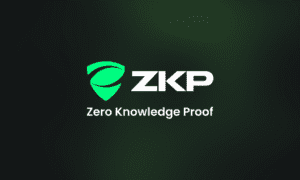Introduction:
In the rapidly evolving landscape of technology, staying ahead of the curve is imperative for professionals in the field. Blockchain technology has emerged as a transformative force, revolutionizing industries and creating new avenues for innovation. As the demand for blockchain expertise grows, so does the need for comprehensive blockchain education. This article explores the pivotal role of blockchain education in enhancing tech skills, providing insights into its significance and impact.
Understanding the Foundations:
A Brief Overview of Blockchain Technology:
Before delving into the importance of blockchain education, it’s crucial to grasp the fundamentals of this groundbreaking technology. Blockchain is a decentralized and distributed ledger system that securely records and verifies transactions across multiple computers. Its primary features include transparency, immutability, and decentralization, making it an ideal solution for various industries beyond cryptocurrency.
Bridging the Skill Gap:
The Rising Demand for Blockchain Professionals:
The tech industry is witnessing an unprecedented demand for skilled blockchain professionals. From finance to healthcare, businesses are exploring ways to integrate blockchain into their operations, creating a surge in job opportunities for those well-versed in this technology. This demand has led to a significant skill gap, emphasizing the need for comprehensive blockchain education programs.
The Significance of Blockchain Education in Skill Enhancement:
Building a Strong Foundation:
Core Concepts and Principles:
Blockchain education serves as the cornerstone for tech professionals looking to deepen their understanding of this transformative technology. A well-structured curriculum covers core concepts such as distributed ledger technology, smart contracts, and consensus algorithms. This foundational knowledge equips individuals with the insights needed to navigate the complexities of blockchain development.
Hands-On Learning:
Practical Application of Blockchain Skills:
Theory alone is insufficient in the dynamic world of technology. Consequently, effective blockchain education goes beyond theoretical concepts. It incorporates hands-on learning experiences, allowing students to directly apply theoretical knowledge to real-world scenarios. Through practical exercises, coding challenges, and project work, students gain a deeper understanding of blockchain concepts. These experiences are invaluable in preparing individuals for the challenges they may face in their professional journeys. By bridging the gap between theory and practice, blockchain education ensures that learners not only grasp theoretical concepts but also develop the practical skills needed for success in the ever-evolving tech landscape.
Navigating Industry-Specific Challenges:
Tailored Education Programs:
Blockchain applications vary across industries, each presenting unique challenges and opportunities. Tailored education programs address these industry-specific nuances, ensuring that professionals are equipped with the skills relevant to their chosen fields. Whether it’s supply chain management, healthcare, or finance, specialized blockchain education enables individuals to navigate and contribute effectively within their respective sectors.
The Impact of Blockchain Education on Career Advancement:
Marketability and Competitive Edge:
As the demand for blockchain professionals intensifies, individuals with specialized education in this field become more marketable. Furthermore, employers actively seek candidates with a deep understanding of blockchain technology, providing them with a significant competitive edge in the job market. Notably, blockchain education serves as a powerful testament to an individual’s commitment to staying current in an ever-evolving tech landscape. This commitment is a key factor that distinguishes candidates and positions them as valuable assets in the dynamic field of technology.
Entrepreneurial Opportunities:
Fostering Innovation:
Blockchain education not only opens doors to traditional employment but also empowers individuals to explore entrepreneurial ventures. Armed with a comprehensive understanding of blockchain, tech enthusiasts can innovate and create solutions that address existing challenges in diverse industries. This entrepreneurial spirit contributes to the continued growth and evolution of blockchain technology.
Challenges and Opportunities in Blockchain Education:
Evolving Curriculum:
Keeping Pace with Technological Advancements:
One challenge in blockchain education is the need for a continuously evolving curriculum. As blockchain technology progresses, educational programs must stay current to remain relevant. Collaboration between academia and industry leaders plays a crucial role in ensuring that educational content reflects the latest advancements in blockchain.
Accessibility:
Widening the Reach of Blockchain Education:
Making blockchain education accessible to a broader audience is another hurdle. Efforts to democratize access through online courses, workshops, and affordable certification programs are vital in bridging the gap and ensuring that aspiring tech professionals, regardless of their background, can benefit from blockchain education.
Conclusion:
Blockchain education is a catalyst for empowering tech minds and enhancing skills in a rapidly evolving technological landscape. Additionally, by providing a strong foundation, practical experiences, and industry-specific knowledge, blockchain education equips individuals to meet the growing demand for skilled professionals in the blockchain space. As the industry continues to evolve, the role of blockchain education will remain pivotal, playing a crucial part in shaping the future of technology and fostering innovation. Therefore, embracing blockchain education today is not just an educational endeavor; it’s a strategic investment in the skills and knowledge needed to thrive in the tech-driven world of tomorrow.



































